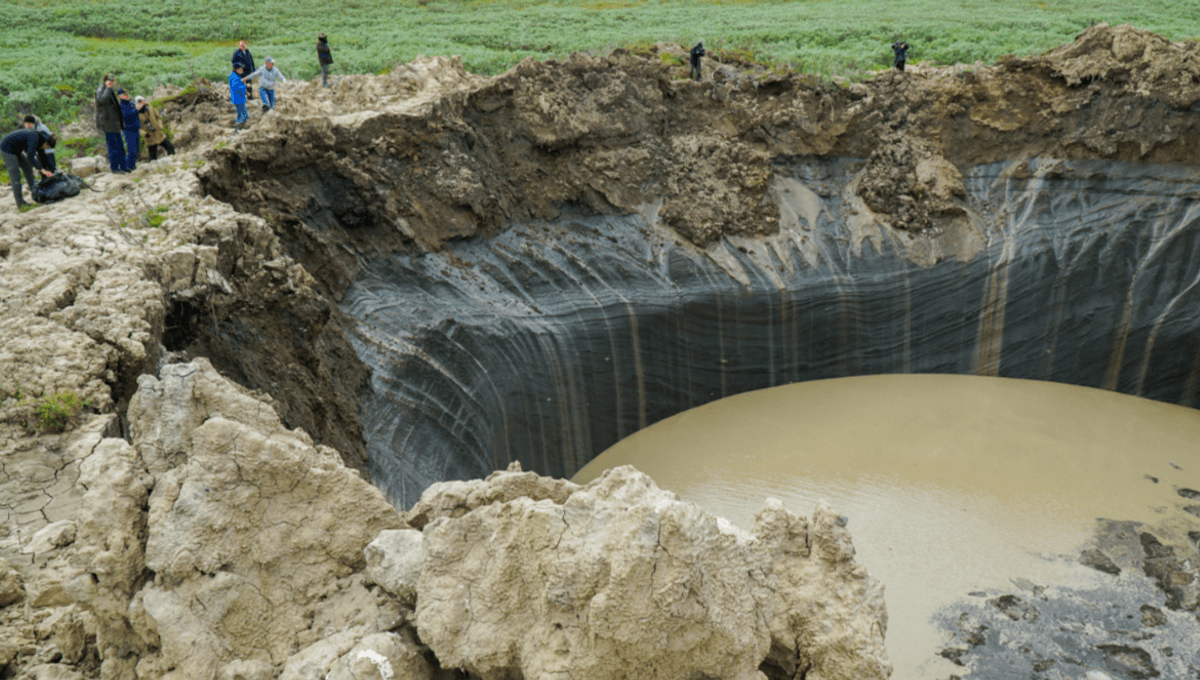
Scientists have cooked up a new explanation for the explosive craters that have recently rocked Siberia. Trapped gas and climate change are still the prime suspects, but the new theory hints that a deeper geological force might be at play.
Since 2012, at least eight circular “gas emission craters” (GECs) have formed in the Yamal and Gydan peninsulas of Russia. Many more are perhaps out there still lying undiscovered, although they tend to make their presence known by creating a large bang during their creation.
Some of the girthiest GECs are more than 20 meters (66 feet) wide and reach depths of 50 meters (164 feet).
Internet cranks have pondered whether the craters might have been created by apocalyptic asteroids or aliens, but those claims have no credible evidence.
The standard scientific explanation of the Siberian pockmarks is that they’re the result of a prehistoric lake buried underneath a layer of permafrost. Organic material became trapped beneath the surface where it was decomposed by microbes, generating heaps of methane gas as a byproduct.
The permafrost layer kept a lid on the subterranean drama, but then came climate change. The average summer temperatures in this part of Siberia have risen by up to 2.5°C (4.5°F) over the past few centuries, which is even higher than the rising temperatures seen across the globe in recent years.
The heat increases the rate of decomposition below the surface, plus it thaws the “ceiling” of permafrost. Pressure gradually mounds like a shaken-up soda bottle with a weakening cap. Eventually: boom! The permafrost becomes so degraded that the gas rapidly escapes and creates a gaping crater.
It’s a logical theory, but researchers from the University of Oslo argue that this explanation fails to answer why they’re only found in a certain corner of Russia.
Instead of the accepted model, the team of Norwegian scientists believes that the explosions are the result of heat and gas that originate deep below the Earth’s surface. The geological makeup of the region means the hot gas is allowed to seep through geological faults to the near-surface, just below the permafrost layer.
The climate crisis still plays a role in this theory, however. Just as the previous theory suggests, the permafrost on the surface has been degrading due to climate change, weakening the “cap” that previously kept hold of the hot gas. The end result is the same: boom!
“Our model suggests that GECs form above local heat and gas conduits, where the permafrost is the thinnest,” the study authors write.
“Extra-and intra-permafrost processes contribute to pressure buildup, while climate change exacerbates permafrost degradation, leading to the deepening of thawed zones and an increased number of thermokarst lakes,” they conclude.
This is just one possible explanation, however. To test their hypothesis, the researchers call out for detailed surveys of the area to examine its permafrost thickness and internal geology.
The study, which has not yet been peer-reviewed, was recently posted to the preprint server EarthArXiv.
Source Link: Siberia's Explosive Craters Are Forged By Deep Geological Forces, New Study Claims